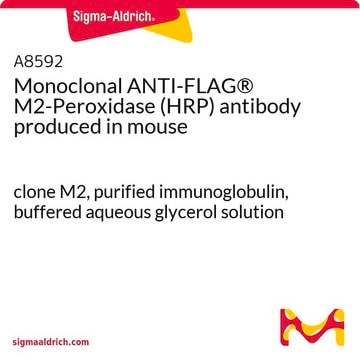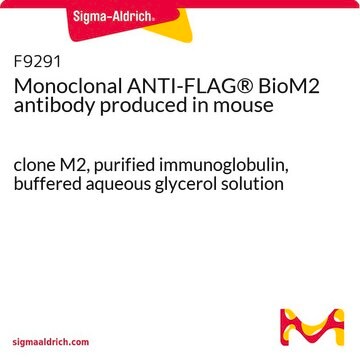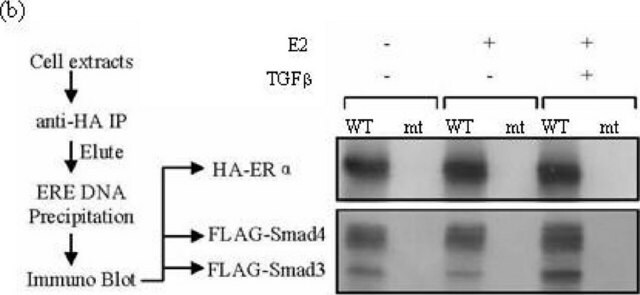F1804
Monoclonal ANTI-FLAG® M2 antibody produced in mouse
1 mg/mL, clone M2, affinity isolated antibody, buffered aqueous solution (50% glycerol, 10 mM sodium phosphate, and 150 mM NaCl, pH 7.4)
Synonyma:
flag antibody, Anti-ddddk, Anti-dykddddk
About This Item
Doporučené produkty
biological source
mouse
Quality Level
conjugate
unconjugated
antibody form
affinity isolated antibody
antibody product type
primary antibodies
clone
M2, monoclonal
form
buffered aqueous solution (50% glycerol, 10 mM sodium phosphate, and 150 mM NaCl, pH 7.4)
purified by
affinity chromatography (affinity tag purification)
species reactivity
all
concentration
1 mg/mL
isotype
IgG1
immunogen sequence
DYKDDDDK
shipped in
wet ice
storage temp.
−20°C
Hledáte podobné produkty? Navštivte Průvodce porovnáváním produktů
General description
Method of purification - Affinity tag purification
Specificity
Immunogen
Application
Western Blotting and EIA
Learn more product details in our FLAG® application portal.
Physical form
Preparation Note
Legal Information
Ještě jste nenalezli správný produkt?
Vyzkoušejte náš produkt Nástroj pro výběr produktů.
also commonly purchased with this product
Storage Class
12 - Non Combustible Liquids
wgk_germany
WGK 2
flash_point_f
Not applicable
flash_point_c
Not applicable
Osvědčení o analýze (COA)
Vyhledejte osvědčení Osvědčení o analýze (COA) zadáním čísla šarže/dávky těchto produktů. Čísla šarže a dávky lze nalézt na štítku produktu za slovy „Lot“ nebo „Batch“.
Již tento produkt vlastníte?
Dokumenty související s produkty, které jste v minulosti zakoupili, byly za účelem usnadnění shromážděny ve vaší Knihovně dokumentů.
Zákazníci si také prohlíželi
Sortimentní položky
Immunoblotting (Western blot transfer) is a common technique in modern proteomics research.
Související obsah
Protein and nucleic acid interaction reagents and resources for investing protein-RNA, protein-DNA, and protein-protein interactions and associated applications.
Reagencie a zdroje pro interakce proteinů a nukleových kyselin pro zkoumání interakcí protein-RNA, protein-DNA a protein-protein a související aplikace.
Náš tým vědeckých pracovníků má zkušenosti ve všech oblastech výzkumu, včetně přírodních věd, materiálových věd, chemické syntézy, chromatografie, analytiky a mnoha dalších..
Obraťte se na technický servis.














